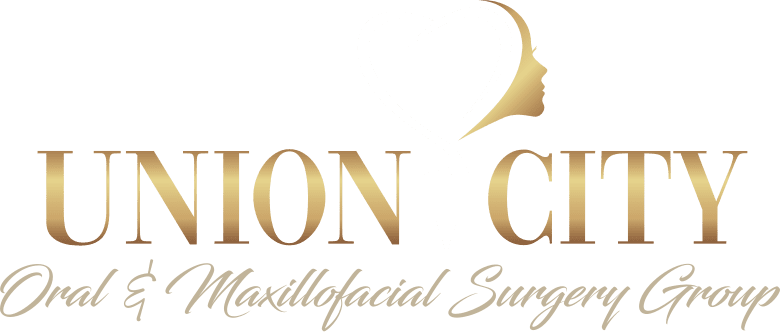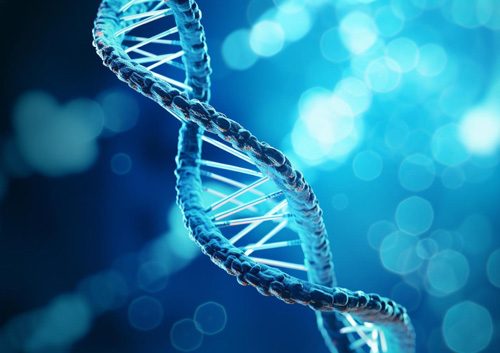Genetics is a key factor in determining many health outcomes, and oral surgery is no exception. Patients may find themselves grappling with questions about why certain conditions affect them or their family members and whether their genetic makeup will influence the success of their oral surgery. Genetics can affect everything from the likelihood of developing oral health issues to how well a patient heals after surgery.
At Union City Oral Surgery Group, we understand the importance of addressing the genetic factors that may impact your oral health and surgical outcomes. Dr. Nancy Herbst and our team utilize state-of-the-art techniques and equipment to tailor our care to your unique genetic profile, ensuring you receive the best possible treatment. Whether you’re undergoing a simple extraction or a more complex procedure like jaw reconstruction, our personalized approach aims to improve your surgical outcomes.
How Genetics Influence Oral Health
Genetics play a significant role in your overall oral health, determining everything from the alignment of your teeth to your susceptibility to certain diseases. Specific genetic markers can indicate a higher likelihood of conditions such as gum disease, tooth decay, or oral cancer. Understanding these markers helps in creating a more effective treatment plan tailored to your needs.
One critical aspect is the variation in the immune response among individuals, which is genetically influenced. A robust immune system can significantly improve recovery times and reduce the risk of post-surgical infections. Conversely, genetic predispositions to weaker immune responses can necessitate more intensive post-operative care and monitoring.
Additionally, genetic factors can affect the bone density and structure in your jaw, which is crucial for procedures such as dental implants. Patients with genetically lower bone density may require bone grafting procedures to ensure the success of their implants. By understanding your genetic background, we can anticipate these needs and prepare accordingly, enhancing the overall success rate of your surgery.
Genetic Testing and Personalized Treatment
Advancements in genetic testing have made it possible to identify specific genetic factors that can affect oral surgery outcomes. These tests can provide detailed information about your predisposition to various oral health issues and how your body may respond to different treatments. This personalized information allows for a more tailored approach to your surgical care.
For example, genetic testing can reveal how your body metabolizes anesthesia, which can be crucial for planning your surgery. Some patients have genetic variations that affect how quickly or slowly their bodies process anesthetics, impacting both the dosage and the type of anesthesia used. By incorporating genetic testing into our pre-surgical assessments, we can ensure that anesthesia is administered safely and effectively.
Furthermore, genetic insights can guide post-surgical care. Knowing your genetic predispositions can help us design a recovery plan that minimizes complications and promotes faster healing. This might include personalized recommendations for medications, dietary adjustments, or specialized physical therapies tailored to your genetic profile.
The Impact of Genetics on Healing and Recovery
The healing process following oral surgery is complex and influenced by numerous factors, including genetics. Some people naturally heal faster due to their genetic makeup, while others may experience prolonged recovery periods or higher risks of complications. Understanding these genetic influences helps in planning and managing post-surgical care more effectively.
Genetic variations can affect the production of collagen, a protein that is essential for wound healing. Individuals with certain genetic profiles may produce collagen more efficiently, leading to quicker healing times and reduced scarring. On the other hand, those with less favorable genetic profiles might require additional interventions to support their recovery.
Inflammatory responses are another area where genetics play a crucial role. Some patients may have a genetic predisposition to heightened inflammatory reactions, which can complicate the healing process. By identifying these predispositions early, we can implement strategies to manage inflammation and ensure a smoother recovery.
Why Choose Union City Oral Surgery Group for Your Genetic Needs?
At Union City Oral Surgery Group, we combine extensive experience with cutting-edge technology to address the unique genetic needs of our patients. Our commitment to personalized care means we take the time to understand your genetic background and incorporate it into every aspect of your treatment. With over 25 years of experience, Dr. Nancy Herbst leads a team dedicated to providing exceptional care tailored to your specific needs.
Our state-of-the-art facility is equipped with the latest advancements in genetic testing and treatment planning. This allows us to offer a level of care that is unmatched in the region. We invite you to experience the difference that personalized genetic care can make in your oral surgery outcomes. Contact us today at (201) 601-9262 or visit our contact form at Union City Oral Surgery Group to schedule a consultation and learn more about how we can help you achieve optimal oral health.


